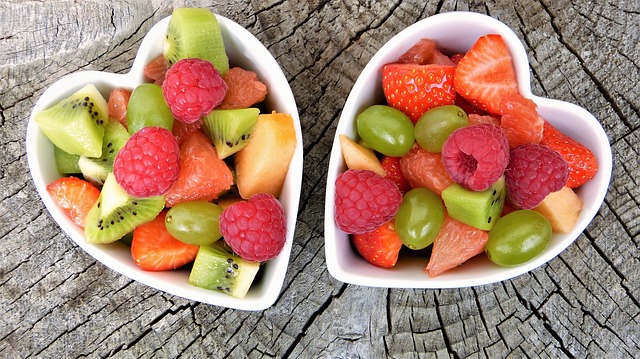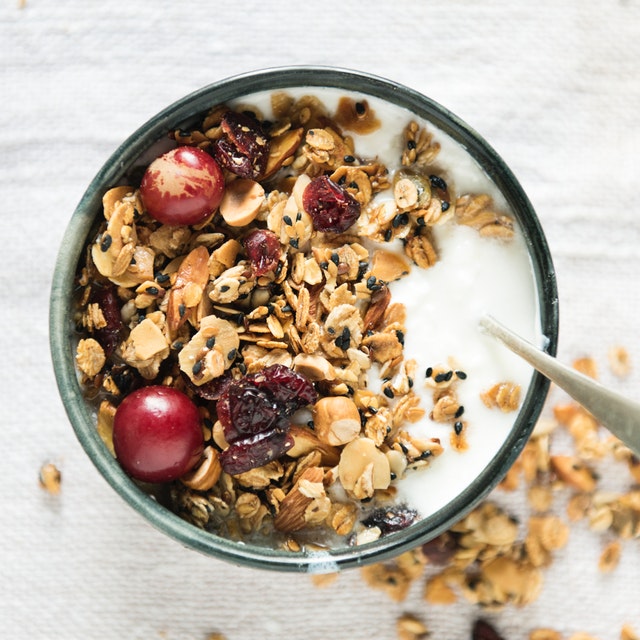Healthy Food and Proper Nutrition Are Not the Same Thing
Working out and eating healthy food, does not mean growth of muscle mass or loss of excess body fat.
When we say proper nutrition in regards to weight training, muscle mass building, burning extra fat – we don’t mean healthy food. Many people think that if something is healthy, it is in absolute accord with building muscle.
It is not so.
 Honey is healthy. Fruits, rice, oats as well. But still the fact is that these contain carbohydrates which in the body converts to sugars. Elevated blood sugar hinders the growth hormone and keeps insulin high = blunting muscle growth and halting the process of burning excess body fat. Or, depending on the amounts = causes weight gain.
Honey is healthy. Fruits, rice, oats as well. But still the fact is that these contain carbohydrates which in the body converts to sugars. Elevated blood sugar hinders the growth hormone and keeps insulin high = blunting muscle growth and halting the process of burning excess body fat. Or, depending on the amounts = causes weight gain.
Various nutrition “trends” and health tips are very often preached and accepted just like dogmas. “It’s healthy”, “it is useful for the organism”…
Why is it healthy? Because it contains vitamin C? Healthy for the bones because of the calcium content?
Natural and proper are different things. Many products boast with “natural” and “natural ingredients”. Petroleum is natural. Snake poison is natural. Oat flakes are natural. Uranium, hallucinogenic mushrooms, all these are natural.
So, “natural” doesn’t really say anything.
Synthetic vitamin E is not natural but is more proper than no vitamin E. There are degrees of rightness and that’s not a black and white question. Vitamin C is great but how much? 1 milligram or 1000? This gives a bit different view on things.
This requires real, not superficial knowledge.
This requires smart nutrition and smart weight training in order to achieve the desired goals.
The Facts
When it comes about muscle growth and loss of excess body fat – the only valid questions and answers are those which pertain to the effect nutrition has over hormones.
Cherries are healthy food. No doubt. But 100 grams of cherries (around 15 cherries) contain 14 grams of sugar. A bit more than 100 grams of any usual soft drink. And 100 grams of cherries contain around 7 milligrams of vitamin C. Daily most minimal dose of vitamin C should be 1000 milligrams. Would you want to get 13 grams of sugar for 7 milligrams vitamin C?
“It’s healthy in moderate doses.” Such generalized, wise-sounding statements without stating what is a moderate dose are of no use. Hormones do not govern themselves by generalized wise-sounding statements.
Peeled banana weights around 100 grams. Contains 20 grams carbs of which 12 grams are pure sugar.
A peach weights around 150 grams. 16 grams of carbohydrates of which 13 are sugar.
And sugar is 100% pure carbohydrate.
Two slices of bread contain 25 grams of carbs. Whole meal bread? Same.
15 cherries, one banana, a peach, two slices of bread = 75 grams of carbohydrates.
75 gr carbs eaten in a day, for a great number of people means no burning excess body fat. It means no maximum release of growth hormone you could potentially get by reason of your weight training.
 Oat flakes? 100 grams of oat flakes contain 56 grams of carbs. Spikes insulin as though you’ve eaten a 100 gr chocolate. It’s similar with other grains. Barley contains 56 grams of carbs. Various muesli combinations contain about 50 grams of carbohydrates per 100 gr product and around 30 grams of sugar.
Oat flakes? 100 grams of oat flakes contain 56 grams of carbs. Spikes insulin as though you’ve eaten a 100 gr chocolate. It’s similar with other grains. Barley contains 56 grams of carbs. Various muesli combinations contain about 50 grams of carbohydrates per 100 gr product and around 30 grams of sugar.
Fake “keto” products? Full of carbs. Everything that says “keto” isn’t necessarily so.
White rice? 76 gr of carbs per 100 gr.
Brown rice? 73 grams of carbs per 100 gr rice.
Brown sugar? False hope.






